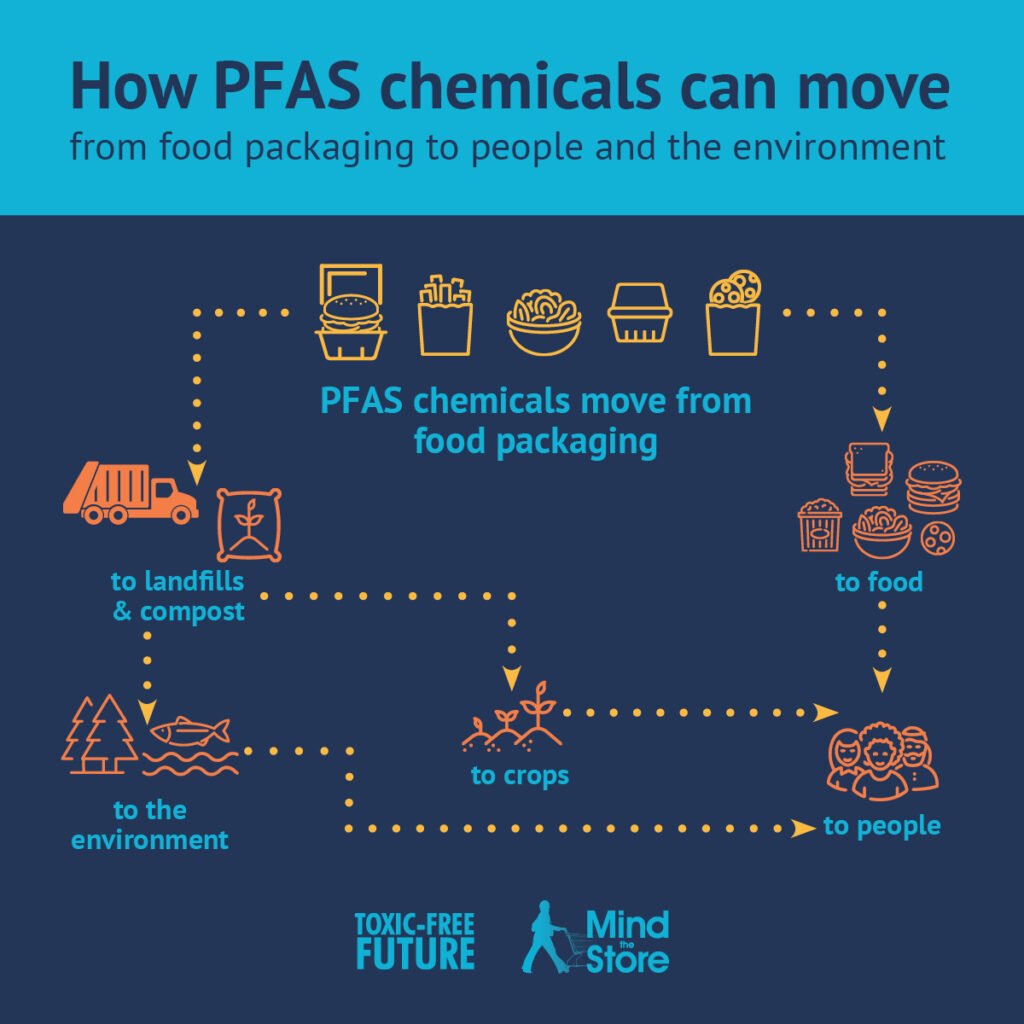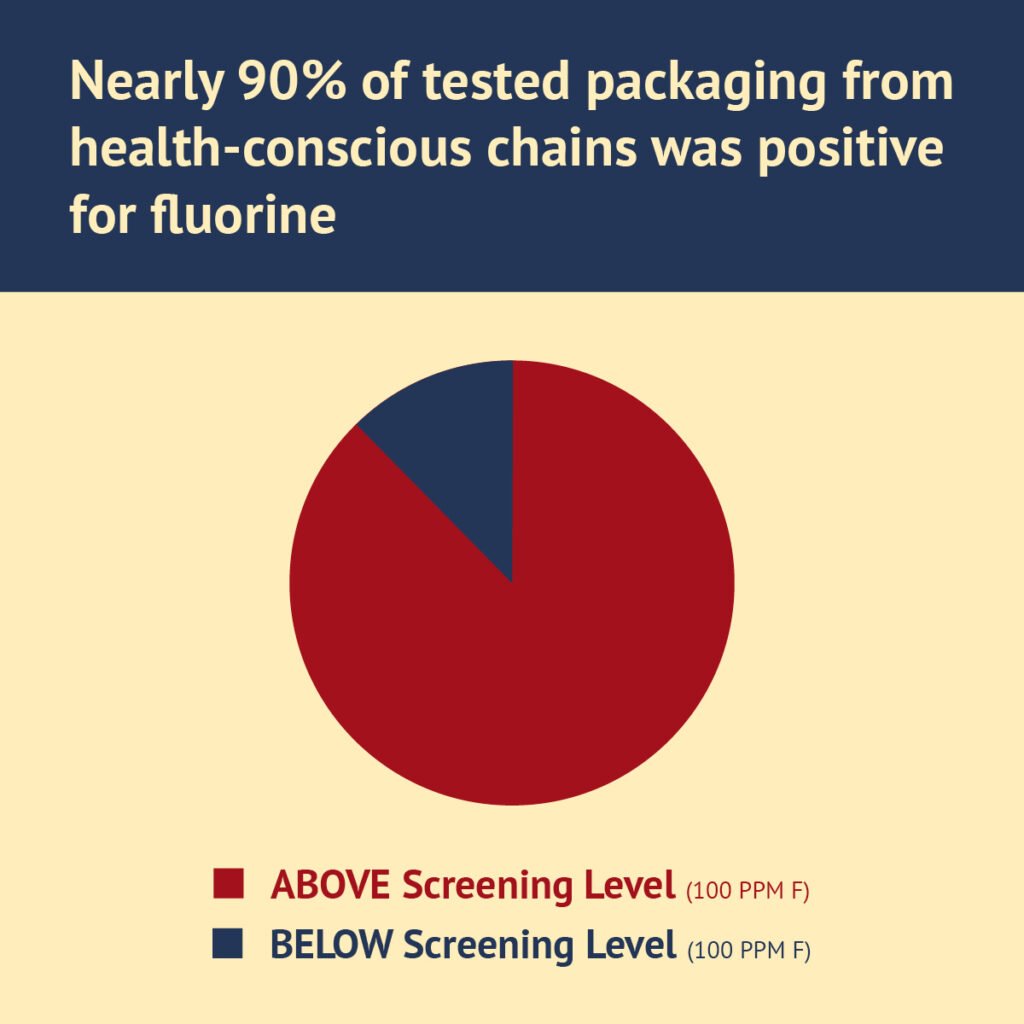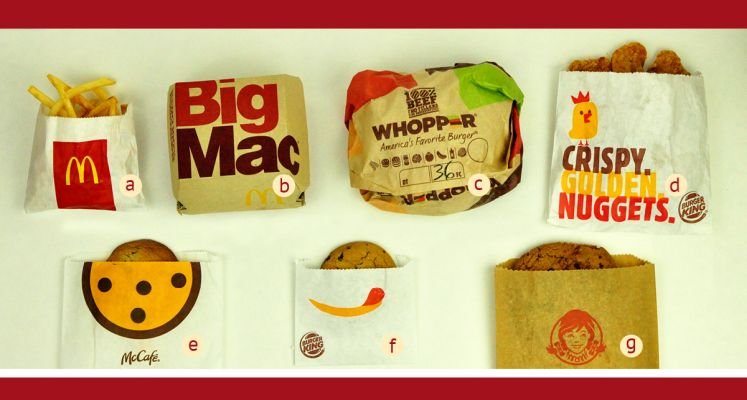Over a million Big Mac boxes are used and discarded each day. And new test results show that those boxes may be contributing to the PFAS (per- and polyfluoroalkyl substances)- “forever chemicals” pollution crisis.
PFAS are used to make materials grease- and water-resistant. They are commonly found in products such as apparel, carpeting, upholstery, and food packaging.

With their remarkable persistence and mobility in the environment, PFAS move through soil to drinking water.
These “forever chemicals” are dangerous to humans and wildlife and have contaminated the drinking water of millions of people across the world. The packaging is used once, but toxic PFAS chemicals last forever in the environment.
New testing of paper food packaging from top fast-food chains found fluorine levels suggesting PFAS treatment in nearly half of samples—including a Burger King’s Whopper, Big Mac box as well as a McDonald’s fry bag and cookie bag.
We’re not lovin’ it.

Even the Food and Drug Administration (FDA), USA, has prohibited, the use of only a small number of chemicals within the PFAS class in food packaging but continues to allow the use of many others, despite the risks posed.
Exposure to PFAS is an especially high concern in the context of COVID-19 since they are linked to suppression of the immune system as well as chronic conditions plus reduced birth weight.

When people eat food from this packaging, they may end up ingesting some of these chemicals too. And when McDonald’s toxic trash goes into a landfill or incinerator, it can contaminate our air and water.
Tell McDonald’s: Your customers don’t want these chemicals in their food. And no one wants them polluting the environment forever, either!
Reference- Silent Spring Institute, Ecology Center, Safer Chemicals, Healthy Families, Mind The Store Campaign, Toxic-Free Future






